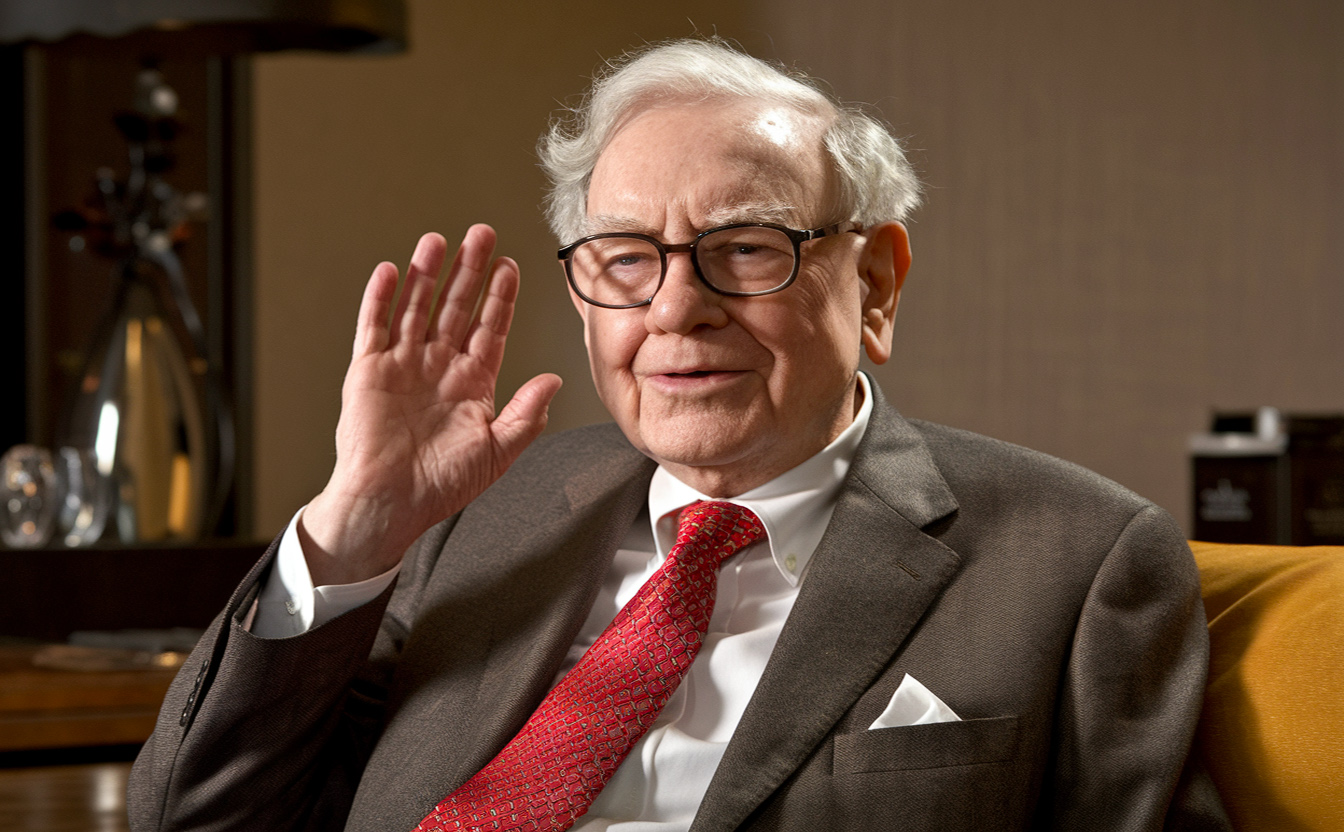Warren Buffett, often called the “Oracle of Omaha,” has built his $148+ billion fortune through disciplined investing and careful money management. His straightforward advice on building wealth often focuses on what not to do—habits that silently drain time and money.
Through decades of market cycles, Buffett’s wisdom has proven remarkably consistent and valuable for investors at all levels. This article explores ten destructive habits Buffett warns against, offering insights into how these common behaviors might limit your financial potential.
1. Spending Before Saving
“Do not save what is left after spending; instead, spend what is left after saving.” – Warren Buffett.
Despite being worth billions, Buffett still lived in the house he bought in 1958 for $31,500. His philosophy on spending emphasizes mindful consumption over impulsive purchases.
Research indicates that the average American spends approximately $314 monthly on impulse purchases, totaling nearly $3,768 annually. Buffett’s approach suggests reversing this pattern: establish savings goals first, then allocate remaining funds for discretionary spending. This simple shift in mindset can dramatically impact long-term wealth accumulation.
2. Putting Off Investment Opportunities
“Someone is sitting in the shade today because someone planted a tree long ago.” – Warren Buffett.
Starting at age 11, Buffett understood the power of early investing. That’s when he bought his first stock. A $10,000 investment at age 25, growing 8% annually, becomes $217,245 by age 65. That same investment started at 35 and yields just $100,627.
This striking difference illustrates Buffett’s point about the cost of procrastination. Every year of delayed investing represents lost compound interest—an invisible but significant drain on potential wealth.
3. Trying to Predict Market Movements
“The stock market is a device for transferring money from the impatient to the patient.” – Warren Buffett.
Historical data shows that missing just the ten best market days between 2002 and 2022 would have cut returns in half. Buffett advocates for steady, consistent investing rather than attempting to predict market movements.
Even professional traders rarely succeed at consistently timing the market, yet many retail investors waste time and money trying to outsmart market cycles. Unless you have a trading system with an edge, most people will do better with long-term investments.
4. Neglecting Self-Education
“Read 500 pages like this every day. That’s how knowledge works. It builds up, like compound interest.” – Warren Buffett.
Buffett spends 80% of his workday reading and thinking. His emphasis on continuous learning has direct financial implications.
Some research suggests that individuals who read regularly may develop better financial literacy and decision-making skills, potentially correlating with more informed investment strategies. In today’s rapidly changing economy, intellectual capital compounds similarly to financial capital.
5. Following Investment Trends Blindly
“Be fearful when others are greedy and greedy when others are fearful.” – Warren Buffett.
The dot-com bubble and the 2008 financial crisis demonstrate the costly impact of herd mentality. When everyone rushed into tech stocks in 1999 or real estate in 2007, Buffett maintained his disciplined approach. Going against the crowd requires emotional fortitude but historically leads to better investment outcomes.
6. Taking On Too Many Commitments
“The difference between successful people and successful people is that successful people say no to almost everything.” – Warren Buffett.
Time mismanagement carries hidden financial costs. Each commitment represents an opportunity cost—time and energy that could be directed toward more profitable activities. Buffett’s selective approach to commitments preserves resources for critical decisions.
7. Focusing Only On Quick Returns
“Our favorite holding period is forever.” – Warren Buffett.
Berkshire Hathaway’s best investments came from decades-long holdings like Coca-Cola and American Express. Short-term trading generates fees, taxes, and missed growth opportunities. Active trading is for people who have taken the time to develop an edge in the markets. Long-term thinking eliminates these costly frictions for those who don’t want to be traders.
8. Trading Too Frequently
“Inactivity strikes us as intelligent behavior.” – Warren Buffett.
The average holding period for stocks has dropped from 8 years in the 1960s to less than 6 months today. Each trade incurs costs—both visible (commissions) and invisible (bid-ask spreads). Buffett’s portfolio turnover rate remains remarkably low, demonstrating that successful investing often requires doing nothing. Patience and inactivity can give you an edge in the markets.
9. Relying Too Heavily On Borrowed Money
“I’ve seen more people fail because of liquor and leverage—leverage being borrowed money.” – Warren Buffett.
Margin debt and leverage through options or futures contracts amplify gains and losses. During market downturns, leverage forces investors to sell at precisely the wrong time. Buffett’s success stems partly from avoiding borrowed money and leverage, ensuring he never faces forced selling during market declines.
10. Making Too Many Financial Decisions
“An investor should act like he had a lifetime decision card with just twenty punches on it.” – Warren Buffett.
Quality decisions require mental energy. Research shows decision-making ability deteriorates after multiple choices. Buffett’s “twenty-punch card” rule encourages careful consideration of each investment decision rather than frequent trading based on short-term market movements.
Conclusion
Warren Buffett’s wisdom highlights how seemingly small habits compound into significant financial outcomes over time. His principles emphasize patience, continuous learning, and disciplined decision-making over quick fixes and constant activity.
By addressing these common pitfalls, investors can better align their behavior with long-term wealth-creation strategies.
